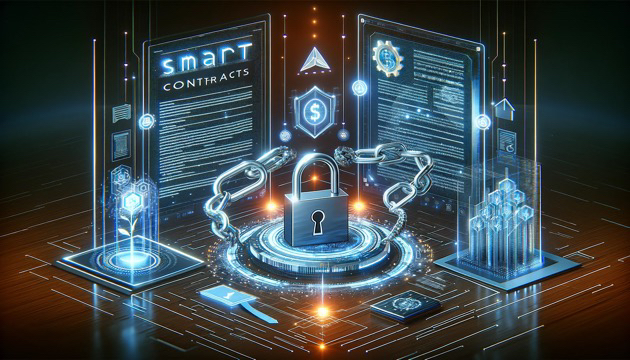
In recent years, there has been a significant boom in the world of blockchain and cryptocurrencies, where smart contracts have played a pivotal role in enabling transactions to be executed automatically, without the need for an intermediary.
However, with the development of technologies, self-learning smart contracts have emerged, capable of automatically adapting to new conditions and changes, which will open wide horizons for the future of digital contracts and various financial applications.
What are self-learning smart contracts?
Traditional smart contracts operate based on pre-defined terms, executing automatically when certain conditions are met. In contrast, self-learning smart contracts integrate artificial intelligence and machine learning technologies, enabling them to modify their rules and strategies based on new data and changing circumstances.
This means that the contract can adapt to market changes, the behavior of parties, or even regulatory laws, without direct human intervention.
How do self-learning contracts work?
Self-learning smart contracts rely on advanced algorithms to process data and analyze patterns. They gather information from multiple sources, such as market data, user behavior, and economic changes, and then use this data to update the contract terms or its operational decisions.
For example, a self-learning smart contract in the stock or cryptocurrency market can adjust trade execution rates according to price fluctuations, increasing performance efficiency and reducing risks.
Key benefits of self-learning smart contracts
Rapid adaptation to changes: These contracts reduce the need for human intervention when sudden changes occur in the market or regulatory environment.
Increased efficiency and accuracy: Self-learning contracts improve transaction execution based on accurate data and continuous analysis.
Reducing risks and losses: Contracts can decrease the likelihood of errors or significant losses by adapting to new conditions.
Saving time and resources: They reduce the need for manual reviews or external interventions, saving time and effort for institutions and investors.
Practical applications of self-learning smart contracts
There are various fields that can benefit from self-learning smart contracts, including:
Decentralized finance (DeFi): Automatically improving lending and borrowing strategies according to market fluctuations.
Supply chains: Adjusting payment or shipping terms based on logistical changes or potential delays.
Insurance: Automatically adjusting compensation policies based on incident data or emerging risks.
Legal contracts: Automatically updating legal terms to align with new laws and regulations, without the need for lawyers to intervene every time.
Future challenges
Self-learning smart contracts face significant challenges, the most important of which are:
Cybersecurity: The need to ensure the protection of data and algorithms from hacking or manipulation.
Transparency and accountability: Difficulty tracking how contracts make decisions independently.
Legal compliance: The necessity to align self-learning contracts with various legal and regulatory frameworks around the world.
In conclusion, self-learning smart contracts represent an advanced step towards the future of digital contracts, providing unprecedented flexibility and higher efficiency, along with the ability to adapt to changes in the environment and market.
As artificial intelligence and blockchain technologies continue to develop, these contracts are expected to become an essential part of the financial and legal digital infrastructure, opening new horizons for both institutions and investors.
#BlockchainNews #blockchain #BinanceSquare #BinanceExplorers #Write2Earn!
